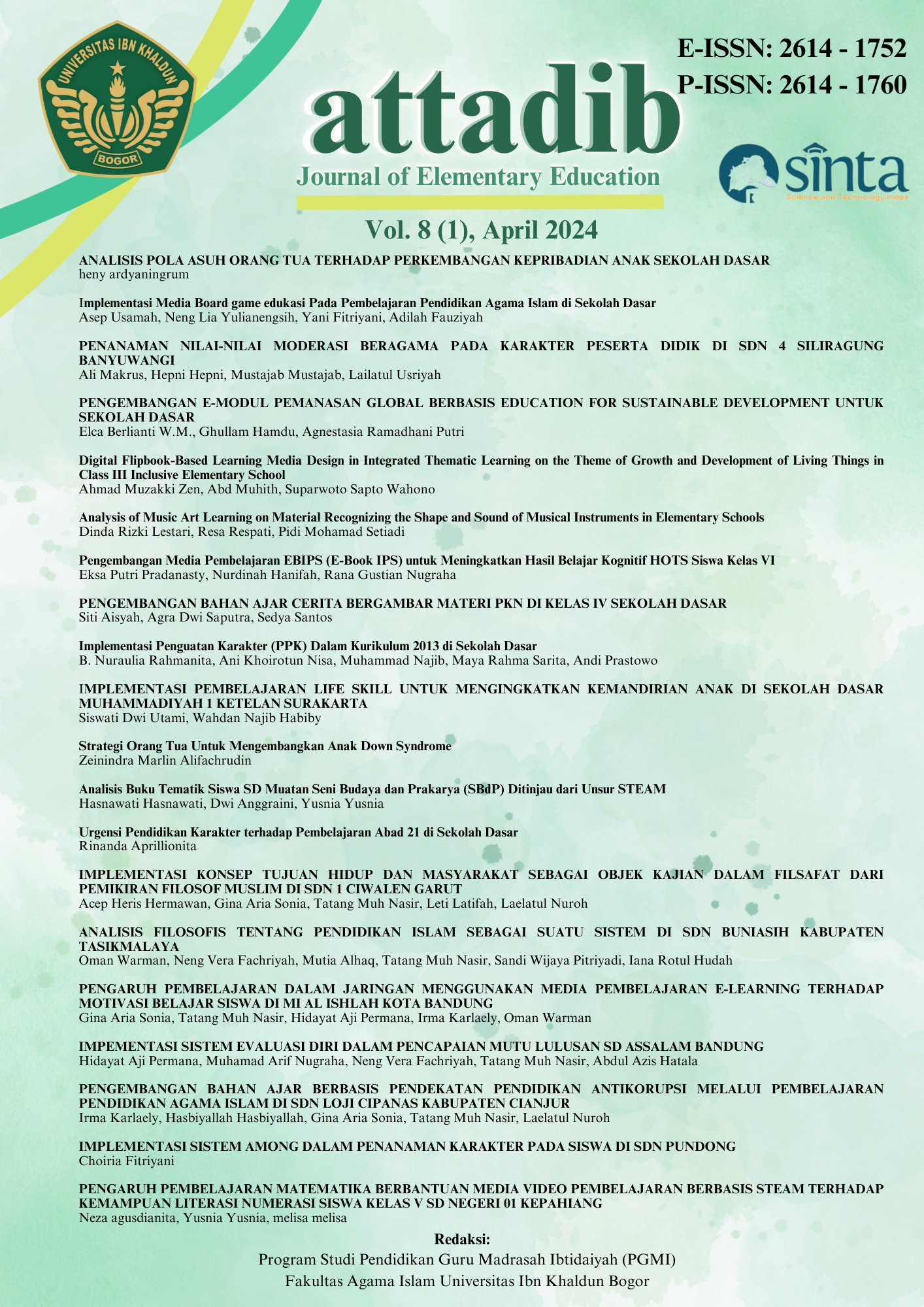THE MANAGEMENT OF TRANSFORMATIVE ISLAMIC CULTURAL EDUCATION IN ELEMENTARY SCHOOLS FROM ITS CONCEPTION TO ACTUALIZATION STUDY
DOI:
https://doi.org/10.32832/at-tadib.v7i1.19527Keywords:
Manajemen Pendidikan Agama Islam, Kebudayaan, Transformatif di IndonesiaAbstract
The objective of this paper is to utilize a mixer methodology, which consists of two parts: a literature review and field studies. The theme of this paper is Islamic Education Cultural Management, and it discusses the history, conception, and management of transformative Islamic education actualization. There are three critical questions addressed in this paper. First, what does the concept of Cultural Management of Islamic Education in Islam entail Second, what is the history and conception of Islamic religious education management, Islam, and transformative culture in Indonesia. Third, what is the contribution of Islamic education management in a transformative Islamic culture in the Islamic education space in Indonesia, where teacher supervision is an integral process. Additionally, culture is an essential part of the local community and cannot be separated from the community's language. The transmission of culture, often referred to as local knowledge, is commonly achieved through the oral retelling of stories across generations. Islamic religious education is founded on principles of truth and nobility, advocating for the rejection of fictitious notions and the avoidance of inappropriate conduct or influence. The significance of Islamic religious leadership education lies in the ease with which it instills moral values and ethics, while also addressing the emotional and cognitive realms of the human experience. Furthermore, this education must be integrated with the cultural and touristic aspects of a region in a cohesive and synchronized manner, while staying true to the unique characteristics of the area.
























